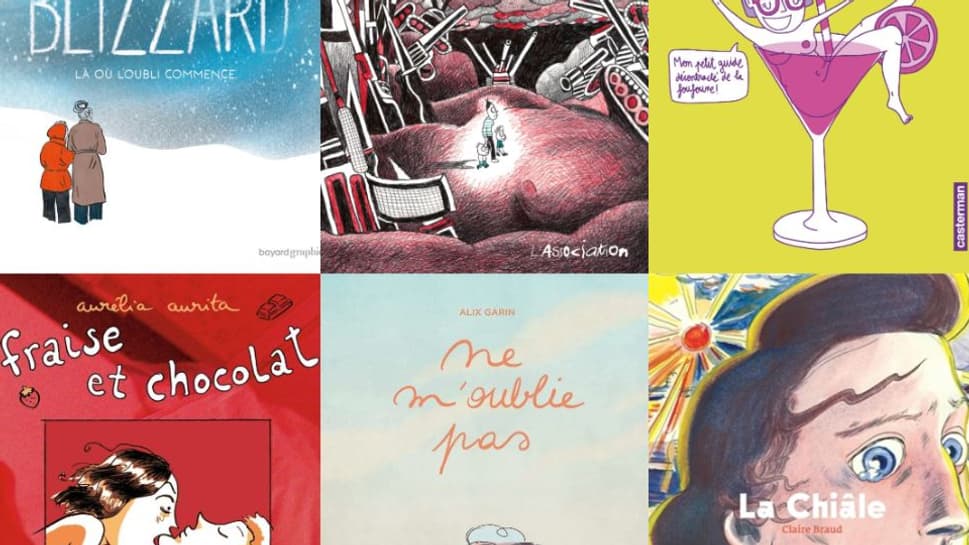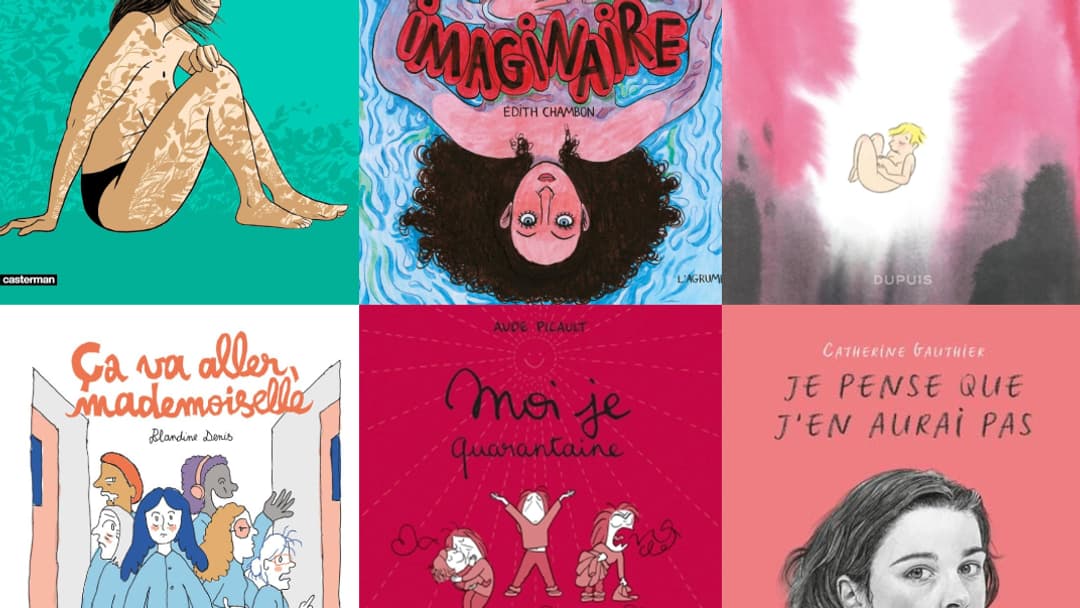Hair, spontaneous abortion, mental load … how intimate the stories in comics are essential
A new generation of comics authors energize the codes of the ninth art when addressing intimate issues not published in comics, which are a certain success in bookstores.
During the last weeks, a 248 -page graphic novel, with a fluorescent green roof, has been in a good place on library shelves. Your title? Our hairs. Signed Lili Sohn, already author of Tone vaginaA comic about female anatomy, is not far fromImpenetrableAbout vaginism, of JungleIn female autism, of MotherIn a toxic mother, and MiscarriageIn this test that affects around 200,000 women per year in France.
So many subjects that would have been unthinkable to approach a few years ago in the comics, in an industry that works mainly with the classics (Asterix, LUCK LUKE), SF and war stories. A revolution that allows authors to evoke unpublished issues without taboo in distant stories of the usual recipes. And that are successful in bookstores.
“Something is transforming into comics,” confirms editor Julie Saucho, who has just published in Glénat Sibylline Of Sistine Dano. This comic strip of captive graphics, in an escort student, was a successful success last February, with 3,500 copiesSold after three weeks. Dejusting for a first book by an unknown author.
“We are going through an exciting time, with many authors who embark on very intimate stories and, therefore, very political,” adds David Groison, who goes to Bayard Blizzard – where forgotten begins De Denise Dorrance, the first comic strip of an 66 -year -old American illustrator who talks about her mother’s Alzheimer’s disease. A topic already mentioned by Alix Garin in 2019 in Don’t forget me.
“The path of Denise Dorrance to capture her mother’s eyes full when she finds her, but also her appearance of almost animal anxiety when she is lost is of great beauty,” the editor greets. 6,000 copies will be on sale as soon as published on April 2. An important figure that testifies the reality of a market that now sees great things, even for unknown authors.
Posted in last September, In enemy territoryThe first album of The unknown Carole Laubel caused a sensation at the last Angoulême festival. This freezing testimony about male domination and the toxicity of patriarchy, which inevitably leads to the extreme right, had great success in bookstores. The courage of these authors, who exhibit their intimate injuries in these graphic stories, hits the eye of the bull.
“There is a real written courage,” greets Juana Macari, director of the BD Festival in Bastia, where it will organize from April 3 to May 3 Dedicated to several recently signed intimate accounts Alix Garin (Impenetrable), Claire Braud (The Chiâle), Clothilde Delacroix (Intimate archeology), Aude Mermilliod (Hatch) and Édith Chambon (My imaginary family).
“They address very hard female problems and subjects to evoke, even in a private circle,” continues the specialist. “Speaking of the births of premature babies, by caesarean section, as does the shore of Delacroix’s clothes, it is something that we speak very little while his life was at stake.” In My imaginary familyÉdith Chambon details your oocyte prick.

“There are very intimate issues that we want to see for a long time. So much! Lili Sohn exclaims.” We also reached a time when editors discover that these comics are economically viable. And finally there is a audience to talk about it. It is an audience that does not necessarily read comics, but it is a female audience that is very interested in these issues, because there was a real lack. “
Our hair Thus he was born from a reflection during his chemotherapy for his breast cancer. “When I lost my hair, my hair was very destabilizing. And I waited for them to return … to immediately remove it! It was very ambivalent as a sensation. When I saw the ‘Januhairy’ movement, which consists of shaving or starting a hair from his body for a month, he asked me for this comic.”
“In my case, if I talk about these issues, it is because I have the desire not to be alone in these reflections,” continues the designer. “Using the first unique person in these comics is also a way of making people feel that they are not alone, that other people think like them. It is the intimate what becomes political.”
If many authors of the “Underground” scene, such as Aline Kominsky-Crumb, Liv Strömquist, Alison Bechdel and Julie Doucet, have already taken over these issues in a very raw way, the phenomenon is recent in France. Aurélie Aurita is a pioneer of the genre with Strawberry and chocolate (2006-2007), success in the taste of suffering where she tells her romantic relationships without taboo.

Since then, with the new generation, another step has taken place. He’s going to go, lady Thus relates the stay of its author in a psychiatric hospital. Another autobiographical inspiration story, I, quarantine D’Ar Aude Picault is aimed at alienation linked to mental burden and the way in which his daily life crushes. And Catherine Gauthier finally talks about her refusal to having children in I think I will not have.
These comics want to start social debates. “The new generation is interested in evoking current issues,” adds Julie Saucho. “I work hard with women and go to women. We offer very contemporary stories, some of which are destined to make us think of today’s world.” “He made me advance in my reflections,” accepts Juana Macari.
Because it allows you to inform the reader without being uncomfortable, comics turns out to be the ideal means to address and popularize these issues. “Some issues are more difficult to address frontal images of reality,” says Lili Sohn. “With the drawing, there is a step back.” The fluorescent green cover of Our hairThat goes “against female hair that we always want to hide”, it is more effective than a long speech.
“With my comics, I offer a first interrogation, which can awaken in readers the desire to do a bigger search,” adds Lili Sohn. “I have many comments to Our hair. In festivals, many women between 30 and 60 years come to discuss their hair practice. Some want to offer it to their adolescence and read it to understand them better. “Enough to create an argument outside the world of comics.
With the exhibition Look through youJuana Macari also hopes to encourage the public to participate and talk about these issues. “I hope there is a projection phenomenon, Echo. We will also invite an association that performs the prevention of sexual health and sexist and sexual violence to accompany the exhibition.” BD has never been in contact with the company.









